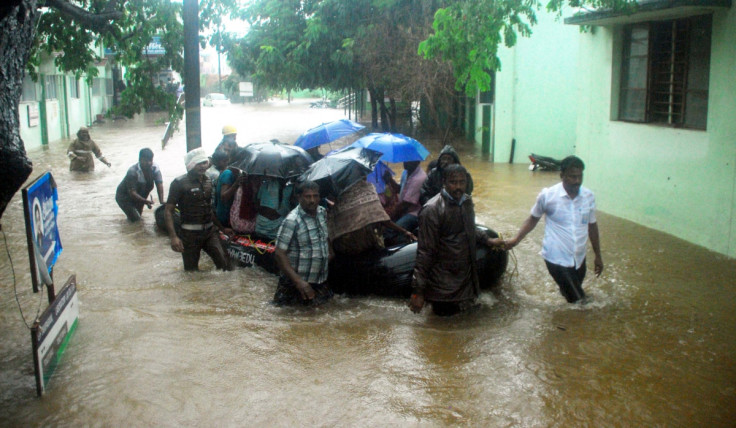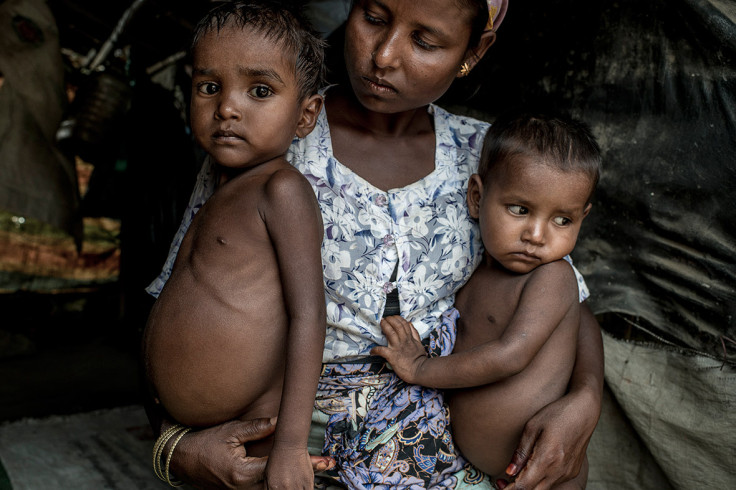COP21: How an unhealthy and greedy diet causes climate change, natural disasters and hunger

Diets are changing globally and have done so rapidly in most high-income countries, like the UK, over the past 50 years. This dietary transition is now happening in most cities of the global south, the nations of Africa, Central and Latin America and most of Asia, where people's habits are changing from a traditional plant-based diet (which is healthier and lower in greenhouse gas emissions) to a diet that is high in processed, energy dense convenience foods (rich in fat and sugar, but poor in nutrients). This includes widespread consumption of sweetened bottled drinks; which are easily available and cheap, even in the most remote parts of the world.
Demographers expect the global population to increase from seven billion to nine billion by 2050, with most of this increase in urban areas of the global south. That will further accelerate the spread of the nutrition transition and the ecological footprint of the agri-food system.
Foods of animal origin have become part of the diet and consumption is rising – red meat and animal products are of particular concern for greenhouse gas emissions, as livestock production, especially intensively reared, is a major contributor of around four-12% of all consumer products.
There are co-benefits in changing these practices for both the environment and for people's health, as unhealthy diets are also associated with the rapid rise of diet-related diseases such as obesity, type 2 diabetes, heart disease and some cancers.
Globalised unhealthy diets are accelerating climate change
The food chain contributes around a quarter of all greenhouse gases emissions from food production (the largest source by far), packaging, distribution and retailing; land use for agriculture, transport/travel and food waste.
Consumer purchasing, cooking, preparation and eating practices also produce greenhouse gases emissions and consumer food practices both drive and respond to the agri-food system.
Climate change increases undernutrition
Climate change increases the risk and intensity of disasters, such as floods and drought, which are likely to impact on the poorest in low and middle-income countries, as a large proportion of the world's hungry live in climate fragile environments.

These climate disasters are most likely to affect those who are vulnerable and already have poor nutrition – women and children – leading to food and nutrition crises. This further reinforces the inter-generation transmission of poor nutrition and poverty.
Undernutrition could increase by 20% by 2050
Unless efforts are made to increase climate resilience, undernutrition could increase by 20% by 2050 according to the Intergovernmental Panel on Climate Change.
There is already widespread undernutrition globally without the added challenge of climate shocks in the lives of the poor, with one billion suffering from chronic hunger and two billion from micronutrient deficiencies (hidden hunger).
The consequences of undernutrition on individual mental and physical development are enormous, and this impacts on a country's development and ability to reduce poverty. So poor nutrition is both a cause and a consequence of climate change. We need to act now if we are to stop the consequences of climate change on undernutrition getting worse and to change the poor "globalised" dietary habits that are contributing to climate change. What can we do?
As citizens and food consumers ourselves we can influence the role diets have on aggravating climate change by eating a healthy, sustainable, plant-based diet. While there is still debate on what a sustainable diet would look like, it seems the following simple steps could go a long way to reducing the contribution of poor diets on greenhouse gas emissions and to poor health.

1. Eat lots of fruit and vegetables and starchy staples
2. Limit red meat and eat more beans, pulses and nuts
3. Eat a varied balanced diet
4. Limit energy-dense processed foods, including sweetened drinks
5. Eat sustainably sourced fish
6. Eat local and seasonal produce
7. Avoid food waste
8. Drink tap water
Supporting people to make changes
Changes in how society organises the agri-food system are needed to support people to make these changes, such as introducing regulations and legislation like controlling food advertising or fiscal interventions to favour the consumption of healthier, sustainable food and tax consumption of energy dense, nutrient poor foods.
These can be supported by educational and motivational interventions, such as a front of pack labelling scheme highlighting the nutritional and environmental profile of foods.
What can we do to mitigate against the impact of climate nutrition on hunger and undernutrition?
This will require input from a whole range of actions, including lobbying governments to highlight the links between climate change and hunger to inform policymaking and to make more informed decisions with better climate forecasts.
Ways to help vulnerable people protect themselves from these future climate shocks could include providing support to diversify their sources of income and livelihoods, providing means to protect people's assets and livelihoods with access to insurance services and savings, and furthering initiatives for empowering women.
COP21 is an important opportunity to tackle the impact of climate change on undernutrition, as well as raising awareness of the impact that unhealthy diets have on climate change and health. Garnering support for interventions that create environments that support individuals to change could help shift current behaviours. We have to act now because the scenario that overconsumption of unhealthy diets indirectly causes hunger through changing the climate is a perverse paradox.
Michelle Holdsworth is Professor of Public Health at the University of Sheffield's School of Health and Related Research
© Copyright IBTimes 2025. All rights reserved.






















